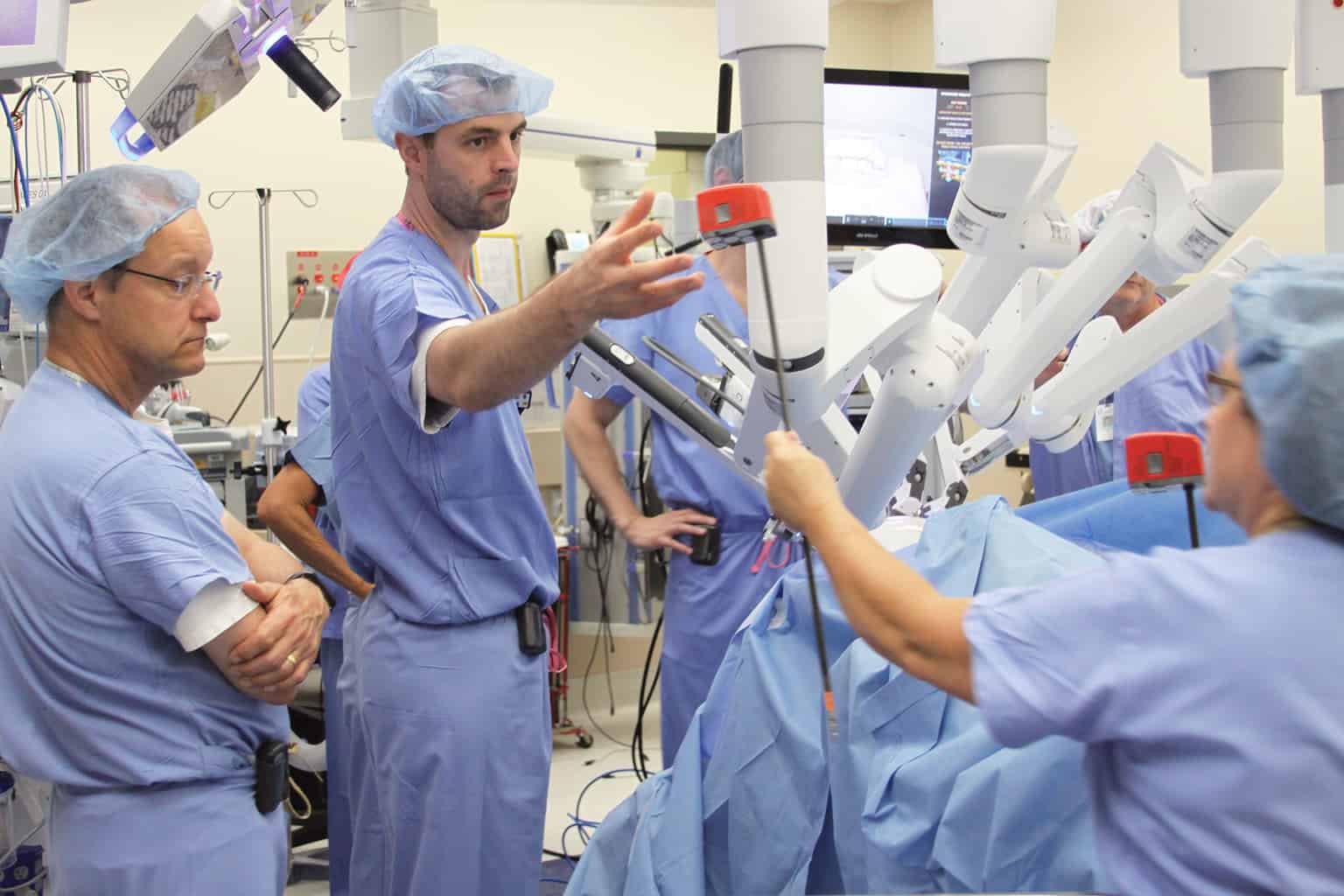
Urology Clinic
Our urology team offers the latest advances in outpatient and surgical management of urologic conditions. Many procedures can be performed using minimally invasive surgical techniques with robotic-assisted surgery.
The Latest Advances In Robotic Assisted Surgery
Hennepin Healthcare offers the latest advances in robot assistive urology surgeries with the da Vinci Xi Surgical System. Our urology team has extensive experience utilizing this system for minimally invasive surgeries. The da Vinci system offers the surgeon a higher degree of precision, greater 3D visualization, enhanced maneuverability of surgical instruments, and the ability to access difficult-to-reach anatomy within the body.
There are a number of potential patient benefits to robot-assisted surgery, including:
- Shorter hospital stay
- Less blood loss
- Less pain
- Fewer complications, including less risk of infection
- Faster return to normal activities due to small incisions and less surgical trauma
The most common urology procedures that can be performed utilizing the da Vinci procedure include:
- Prostatectomies
- Nephrectomies
- Partial nephrectomies
- Pyeloplasty
- Reconstructive surgery of the kidney

